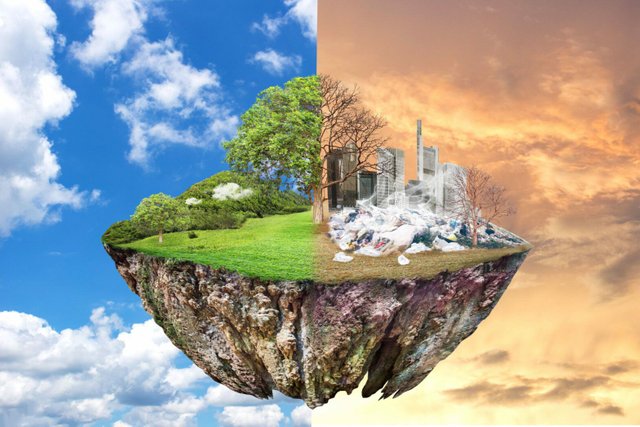ChatGPT
Global warming refers to the long-term increase in Earth's average surface temperature due to human activities, primarily the emission of greenhouse gases into the atmosphere. The term is often used interchangeably with climate change, which encompasses a broader range of effects beyond just temperature rise. Global warming is a major environmental concern and has significant implications for ecosystems, weather patterns, sea levels, and human societies worldwide.
Key points about global warming:
Greenhouse Effect: The Earth's atmosphere contains gases, such as carbon dioxide (CO2), methane (CH4), nitrous oxide (N2O), and water vapor (H2O), that trap heat from the sun. This natural process is called the greenhouse effect and is essential for maintaining a stable climate, enabling life to exist on Earth.
Human Activities and Greenhouse Gas Emissions: Over the past two centuries, human activities, especially the burning of fossil fuels (coal, oil, and natural gas), deforestation, and industrial processes, have significantly increased the concentration of greenhouse gases in the atmosphere. This enhanced greenhouse effect intensifies the warming of the planet.
Rising Temperatures: Global temperatures have been steadily increasing over the last century, with the past few decades experiencing more rapid warming. This is evidenced by rising average temperatures, melting glaciers and polar ice caps, and shifts in weather patterns.
Climate Impacts: Global warming contributes to various climate impacts, including more frequent and severe heatwaves, extreme weather events (such as hurricanes and floods), disruptions in precipitation patterns, and changes in ecosystems and biodiversity.
Sea-Level Rise: The warming of the Earth leads to the melting of ice from glaciers and ice sheets, causing the sea levels to rise. Rising sea levels pose a significant threat to coastal communities, low-lying islands, and critical infrastructure.
Ocean Acidification: Increased atmospheric CO2 is absorbed by the oceans, leading to ocean acidification. This process affects marine life, particularly organisms with calcium carbonate shells and skeletons, such as coral reefs and shellfish.
Mitigation and Adaptation: Addressing global warming requires both mitigation and adaptation strategies. Mitigation involves reducing greenhouse gas emissions through renewable energy adoption, energy efficiency, and sustainable practices. Adaptation involves preparing for and responding to the impacts of climate change to reduce vulnerabilities.
International Agreements: Governments worldwide have come together to address climate change and global warming through international agreements like the Paris Agreement. The goal is to limit global temperature rise to well below 2 degrees Celsius above pre-industrial levels and pursue efforts to limit it to 1.5 degrees Celsius.

Global warming is a complex issue that requires global cooperation and collective action to mitigate its impacts and ensure a sustainable future for generations to come. It is essential to continue researching and understanding the science behind global warming and implement measures to reduce greenhouse gas emissions and promote environmental sustainability.